 Anne Quiello,
Sr. Consultant, Director of Women in Leadership,TLG
Anne Quiello,
Sr. Consultant, Director of Women in Leadership,TLG
My husband, who is a leader from the Boomer generation, was asked to sit on a panel representing various generations to discuss generational differences in the workplace. A Millennial panel member challenged my husband as being unwilling and unable to adapt. “Your generation won’t adapt to the way we want to work. Why should we come in and work from 8-5, Mon-Fri, as long as we get our work done?” My husband’s response went something like this:
“I have bought the White Album by the Beatles five times. The first time was an LP record, then I bought the 8-track version, followed by the cassette tape, then the CD and just yesterday, I downloaded it on my iPhone. In terms of adapting, your generation has been evolutionary while our generation has been revolutionary!” To which great applause erupted reinforcing the generational divide.
While typical, are these generational differences as deep and broad in reality?
Recent analysis of generational research has refuted the categorical differences we have assigned to the different generations in the workplace. An August 2019 Harvard Business Review article, “Generational Differences at Work Are Small. Thinking They Are Big Affects Our Behavior,” reported:
“Most of the evidence for generational differences in preferences and values suggests that differences between these groups are quite small. In fact,
there is a considerable variety of preferences and values within any of these groups. For example,
a thorough analysis of 20 different studies with nearly 20,000 people revealed small and inconsistent differences in job attitudes when comparing generational groups. It found that, although individual people may experience changes in their needs, interests, preferences, and strengths over the course of their careers,
sweeping group differences depending on age or generation alone don’t seem to be supported.
Responding to Generational Differences
Rather than the existence of generational differences, it seems that our beliefs about generational differences are the real challenges in the workplace. There are two sets of beliefs that can interfere with how we work with other generations. One set of beliefs are the stereotypes we hold true about people of another generation, e.g., Generation X lacks a strong work ethic and Baby Boomers are slow to adapt.
The other set of beliefs are meta- stereotypes or “what we
think others believe about us based on our age group.” The research goes on to find that the stereotypes assigned to older generations by the younger are actually more positive than we would predict, e.g. Boomers are hardworking, mature. Yet the meta stereotypes held by the older research participants, were more negative, e.g. Boomers believe that younger generations perceive them to be boring, grumpy.
Therefore, the research confirms that neither stereotypes given to other generations nor meta-stereotypes or what we believe other generations think of us were accurate.
The HBR research turns our assumptions about generational differences upside down. How should we respond? Consider the following:
- Abandon a “we vs. them” mindset reinforced by generational stereotypes – positive or negative. Research has proven that each generation is made up of unique individuals with unique values and preferences. Seek out what each group has in common, foundational to building effective workplace relationships.
- Build and develop teams who understand and value individual differences in interpersonal communication styles and can adapt their styles to what’s needed to reach their goals.
- Message for Leaders: hold career development discussions with your employees to understand work-life balance needs as their careers progress. The research underscores that our values, needs, and preferences change over the course of our career vs. being defined by generational group.
Anne Quiello
AQuiello@turknett.com
770-270-1723
 Anne Quiello,
Sr. Consultant, Director of Women in Leadership,TLG
Anne Quiello,
Sr. Consultant, Director of Women in Leadership,TLG
